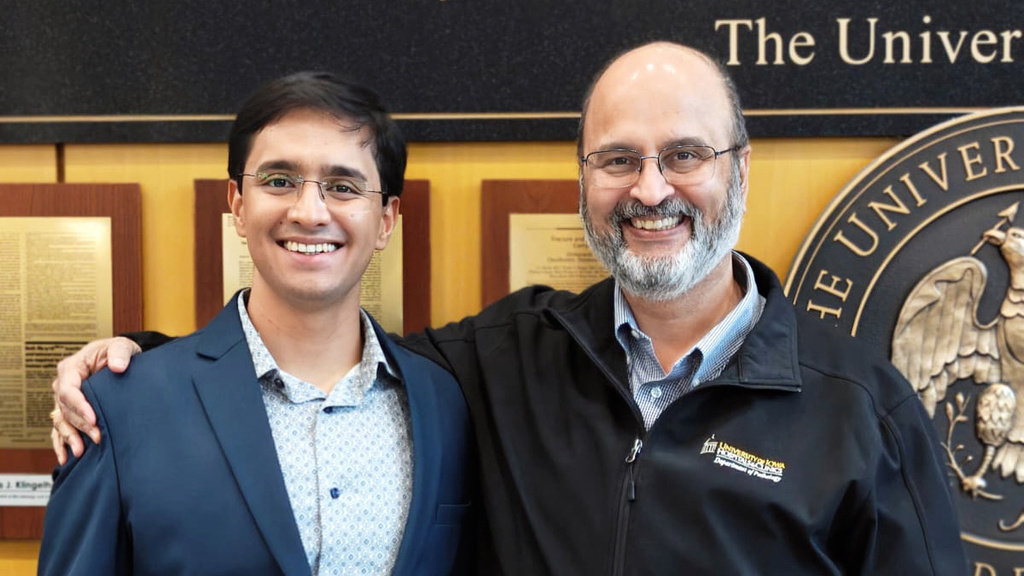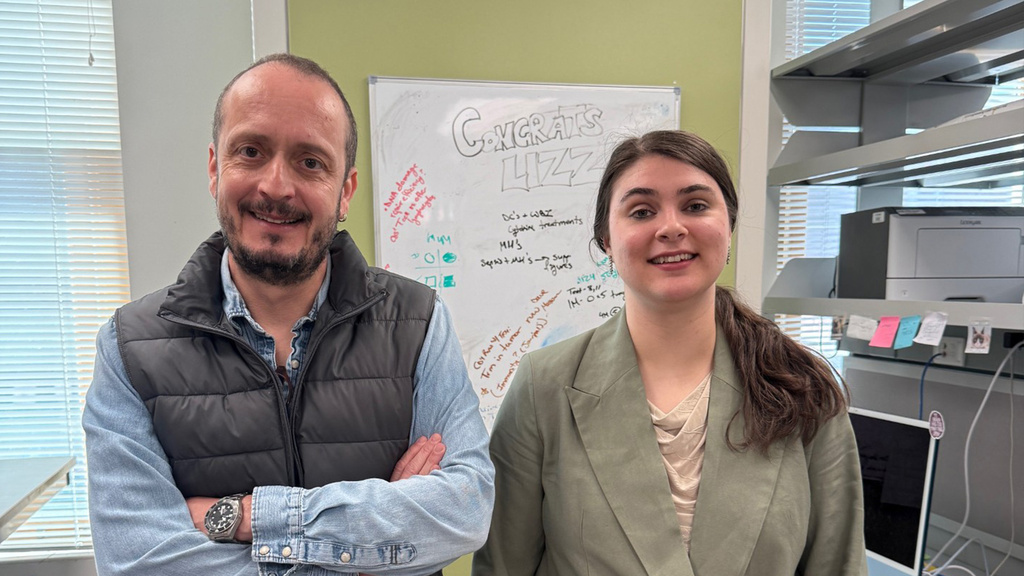News Archive

Brad Seaton elected to APEX Council
Tuesday, April 29, 2025
On Tuesday, April 22, 2025, Brad Seaton, Clinical Department Administrator of the University of Iowa Department of Pathology, was elected to serve on the Academic Pathology Executives Section (APEX) Council as the Midwest Regional Representative.

Publications: Week of April 29, 2025
Tuesday, April 29, 2025
Featuring: Anand Rajan KD, MBBS; Stephanie J. Chen, MD; Osorio Lopes Abath Neto, MD, PhD; Yiqin Xiong, MD, PhD

Under the Scope: April 2025
Tuesday, April 29, 2025
April's recipients include Brenna Lamm, Grace Wani, and Erin Weyers.

Publications: Week of April 22, 2025
Tuesday, April 22, 2025
Featuring: Vladimir Badovinac, PhD; Amani Bashir, MBBS; Andrew Bellizzi, MD; Dustin Bosch, MD, PhD; Brooks Jackson, MD, MBA; Amr Masaadeh, MBBS; Steven Moore, MD, PhD

Megan Samuelson receives professorship highlighting expertise in gynecologic pathology
Monday, April 21, 2025
Megan Samuelson, MD, clinical associate professor and director of anatomic pathology in the Department of Pathology, received the Jo Ann Benda Surgical Pathology Professorship during a Carver College of Medicine investiture ceremony on April 17.

Mohit Upadhye Successfully Defends Ph.D. Dissertation on the Immunoregulatory Role of CD8+ T Cells in Multiple Sclerosis
Tuesday, April 15, 2025
Mohit Upadhye successfully defended his Ph.D. dissertation on March 27, 2025, completing the Experimental Pathology graduate program in Dr. Nitin Karandikar’s lab at the University of Iowa. His dissertation, titled “myelin-reactive CD8+ T cells influence conventional dendritic cell subsets towards a mature and regulatory phenotype in experimental autoimmune encephalomyelitis (EAE),” uncovers a novel immunoregulatory role for CD8+ T cells in the context of multiple sclerosis (MS), an autoimmune demyelinating disease of the central nervous system (CNS).


Publications: Week of April 8, 2025
Tuesday, April 8, 2025
Featuring: Vladimir Badovinac, PhD; Roger Berton, PhD; Matthew Gosse, MD; John Harty, PhD; Mohammad Heidarian, MSc; Shravan Kumar Kannan, MS; David K. Meyerholz, DVM, PhD; Andrean Simons-Burnett, PhD

Elizabeth Escue successfully defends her M.S. thesis
Monday, April 7, 2025
Elizabeth Escue successfully defended her M.S. thesis on March 26, 2025, completing the Pathology M.S. program. Her thesis, titled The Ability of Memory CD8 T Cell Subsets to Numerically and Functionally Recover Following Whole-Body Irradiation is Influenced by Their History of Cognate Antigen Exposures, explores the impact of whole-body irradiation (WBI) on memory CD8 T cells with repeated cognate-antigen (cognate-Ag) exposures.

Publications: Week of April 1, 2025
Tuesday, April 1, 2025
Featuring: Michael Henry, PhD; Vincent Liu, MD, FAAD; David K. Meyerholz, DVM, PhD; Meredith Parsons, MD; Anand Rajan KD, MBBS; Annette Schlueter, MD, PhD
Pagination